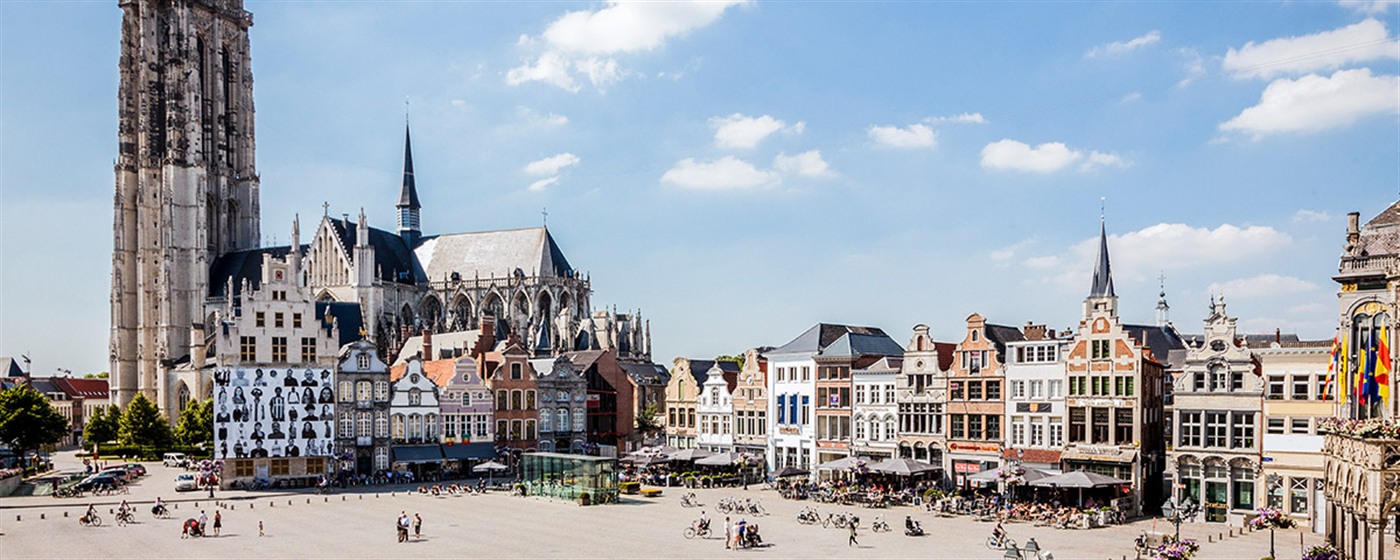In Mechelen, Belgium, Research Informs Best Practice for Violence Reduction Off- and Online

The leadership in the city of Mechelen, Belgium, is no stranger to the international spotlight. In 2016, they successfully leveraged local action and membership in international networks to secure the World Mayor Prize for Mayor Bart Somer’s commitment to building a stronger and more inclusive local community. More recently, the city was among eight other cities and local organizations to receive funds from the Peace Incentive Fund (PIF), which invests in city-focused violence reduction and prevention and was made possible by Peace in Our Cities (PiOC) co-facilitating partner, the Kroc Institute for Peace and Justice.

Mechelen, Belgium
Earlier this year in a webinar discussing their work, representatives from the city of Mechelen and local academic partners shared their insights. The project primarily focused on leveraging social media and peer-to-peer approaches for the prevention of urban violence and violent extremism. City leadership was keen to use the project in order to better understand what online threats they should focus on as a local government, and how to translate their current offline best practices to an online context.
In their discussion of preliminary results, Mechelen city representatives emphasized that the city leadership has long recognized that effective violence prevention strategies require both investments in law enforcement and reinforcement of positive narratives of community cohesion. In short, they summed it up as the “we are all in this together” approach advanced by their mayor. Mechelen's approach is informed by strategies that recognize structural exclusion and child poverty as unacceptable; a clean and attractive urban environment as desirable; cyberbullying and radicalization as preventable; and investment in youth and exit programs for offenders as necessary.
The PIF award enabled Mechelen to strengthen ongoing research programs to develop new tools, skills, and frameworks for first-line prevention practitioners in the digital space. The city has also championed the creation of safe spaces that encourage young people to engage in peer-to-peer support and express their frustrations in a non-violent way, with the aim of translating their voices to policymakers. To achieve the latter, they relied on robust outreach efforts and new technologies, including gamification and outreach on platforms such as Discord.
The peer-to-peer approach specifically allowed the city leadership to better understand what threats young people face in the digital world, how they perceive the online threats, and what good online policy could look like. The conversations surfaced interesting insights, including issues around body shaming and mental health, which young people perceived as a form of violence in the digital space.
With a relatively small funding award, Mechelen strengthened its existing Online Prevention Approach program and created online tools for reaching out to young people. They are also further refining the program, and continue to engage with young people as part of this process. The project’s success was possible, as noted by city representatives, because of partnerships - including with the local academic institutions - and emphasis on centering youth voices throughout the process of data collection and analysis. This collaborative and interactive process will ultimately also inform future approaches in the city.
In conclusion, they recognized that collaborating with a local academic institution, centering youth voices, and using an iterative process for data collection and analysis which will inform the deployment of future initiatives were instrumental to PIF’s project execution.

About the Author
Bojan Francuz is a Program Officer at the Center on International Cooperation on the Pathfinders for Peaceful, Just and Inclusive Societies working on issues of violence prevention and reduction.





